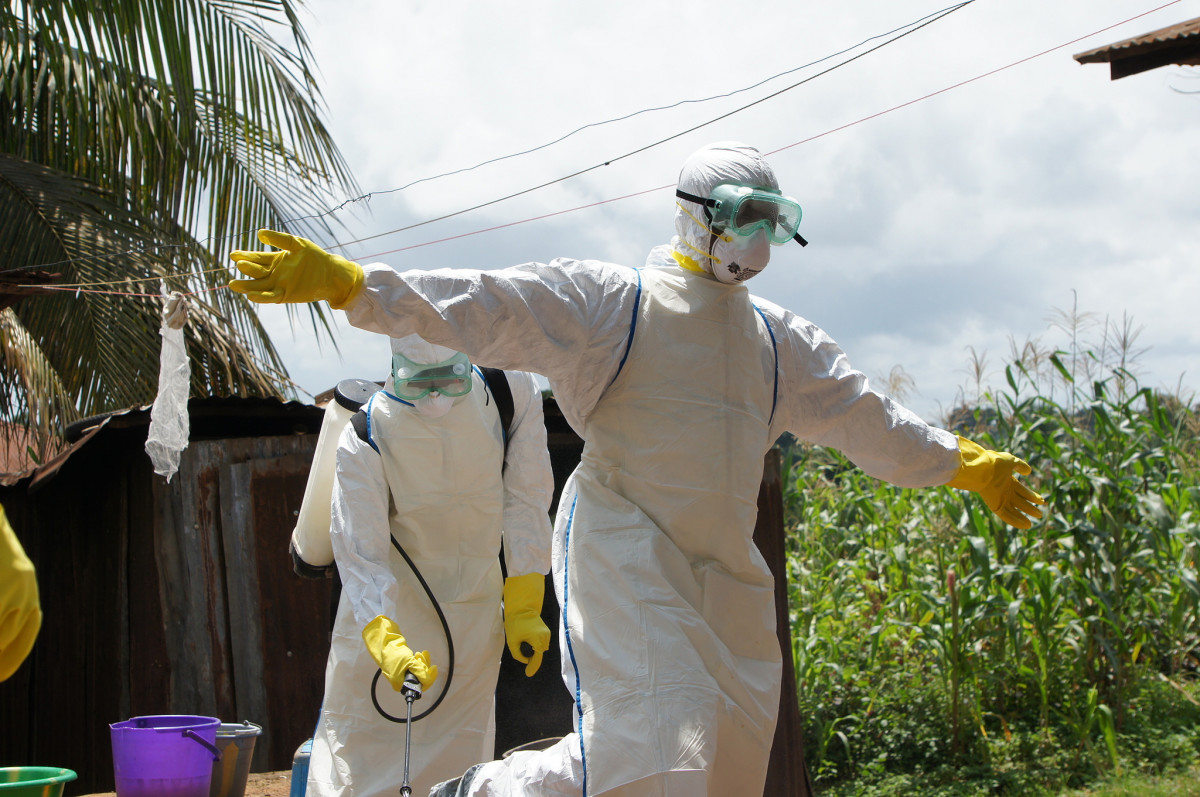The work of a researcher from the Baltimore-based University of Maryland School of Medicine could lead to a vaccine that would combat the Ebola virus’ deadly spread in West Africa.
Dr. Myron M. Levine, a professor at the med school’s Center for Vaccine Development, was tapped to co-lead a test site in Bamako, Mali, where a phase of the Ebola vaccine’s human trials will be administered. It’s a joint effort by the University of Maryland School of Medicine, the U.S. National Institutes of Health, GlaxoSmithKline and the Ministry of Health of Mali.
If the trial vaccine receives the necessary regulatory approvals, testing could begin on healthy volunteers as early as September. The trial phase could be completed by the end of the year.
“If the vaccine trials begin according to schedule, a new paradigm will have been established whereby multiple agencies mobilize to address a public health threat by accelerating the preliminary evaluation of a promising potential public health tool,” Levine, who is currently in Mali, said in a statement.

Dr. Myron M. Levine. (Photo courtesy of UMB)
The fast-tracked work to ready the elusive vaccine comes amid warnings from the World Health Organization that the Ebola virus could infect as many as 20,000 people. The WHO reports that over 1,500 people have died from the disease since the unprecedented outbreak began earlier this year in Guinea.
Among those infected are about 240 medical professionals, including two American workers. Healthcare workers would likely be the first to receive a vaccine.
As Ebola continues to spread, the virus could adapt and potentially threaten even more people with infection. Distrust of quarantine procedures and other healthcare systems among the population where the disease is spreading is also abetting the virus’ spread, said Dr. Alan L. Schmaljohn, a professor of microbiology and immunology at the University of Maryland Medical School.
The increasingly desperate situation has led medical workers to cry out for any treatment that could help stop the disease.
“The people on the ground have described it as spiraling out of control,” Schmaljohn said.
Researchers have been working to develop an Ebola vaccine for more than 20 years. The U.S. Department of Defense funded much of the work as officials sought to discover a vaccine that could beat back a potential Ebola bioterrorism attack.
But the crisis in West Africa is fueling a sense of urgency to the develop the vaccine for public health purposes.
“They were kind of crawling before, and they’re suddenly racing toward human trials,” Schmaljohn said of the vaccines.
Separate from Levine’s work, Schmaljohn is working on a vaccine with Paragon Bioservices, which is headquartered at UMB BioPark in West Baltimore.
Profectus Biosciences, which has an office in East Baltimore, has also been working on an Ebola vaccine for about five years. It’s currently in the pre-clinical development phase, said company president Jeffrey Meshulam.
But for the time being, the project Levine is working on remains the only Ebola trial vaccine set to go to the clinical trial stage.
Development of the vaccine, which was first tested 15 years ago and relies on a strain of a chimpanzee cold virus, brought together an international consortium that received a $4.6 million grant for the accelerated human testing work.
Along with vaccine research, the government is also funding research on the experimental drug ZMapp, which uses three antibodies that are produced in tobacco plants. On Tuesday, the U.S. Department of Health and Human Services announced an 18-month contract with Mapp Biopharmaceutical, Inc., which provides about $25 million to develop the drug.
Before you go...
Please consider supporting Technical.ly to keep our independent journalism strong. Unlike most business-focused media outlets, we don’t have a paywall. Instead, we count on your personal and organizational support.
3 ways to support our work:- Contribute to the Journalism Fund. Charitable giving ensures our information remains free and accessible for residents to discover workforce programs and entrepreneurship pathways. This includes philanthropic grants and individual tax-deductible donations from readers like you.
- Use our Preferred Partners. Our directory of vetted providers offers high-quality recommendations for services our readers need, and each referral supports our journalism.
- Use our services. If you need entrepreneurs and tech leaders to buy your services, are seeking technologists to hire or want more professionals to know about your ecosystem, Technical.ly has the biggest and most engaged audience in the mid-Atlantic. We help companies tell their stories and answer big questions to meet and serve our community.
Join our growing Slack community
Join 5,000 tech professionals and entrepreneurs in our community Slack today!

The person charged in the UnitedHealthcare CEO shooting had a ton of tech connections

From rejection to innovation: How I built a tool to beat AI hiring algorithms at their own game

Where are the country’s most vibrant tech and startup communities?



